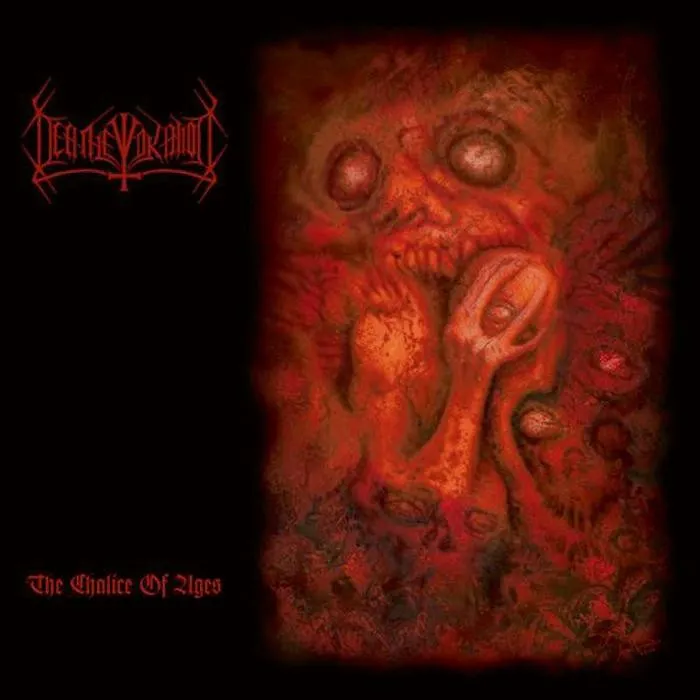
There are endless underground classics in the Hall. From Entombed’s Left Hand Path and Cryptic Slaughter’s Money Talks to Napalm Death’s Scum and Autopsy’s Severed Survival, the curation effort has been a balance of art form and tenacity, with a lot of luck thrown in. There are other factors, too. Nostalgia, a vibrant history, relationships and maybe near-death experiences all funnel into the calculus that is the Hall of Fame.
San Diego’s Deathevokation weren’t (or rather aren’t) like most of the bands we’ve encountered. They were, historically speaking, a one-off. Their debut, The Chalice of Ages, was designed to stay beneath the surface. Although Götz Vogelsang, a German transplant, Steve Nelson, Brian Shuff and Scott Ellis had signed to Spain’s Xtreem Music (formerly Drowned Production and Repulse Records), they, as you will learn, had no intentions of jetting off to squalid venues in the hopes of minor celebrity. Deathevokation were hyper-local to Southern California and, at times, Tijuana, Mexico. They were their happiest when underexposed, left to their own devices.
The Chalice of Ages was released by Xtreem in 2007. The current love-fest for old-school death metal had yet to materialize. There were undercurrents, though. California’s Fatalist, Sweden’s Entrails and New Jersey’s Funebrarum all had their gross, olivaceous tentacles into the Old World. Of course, originals such as Deceased, Immolation, Autopsy and Incantation still fired off quality death metal. But everyone else had moved on, engrossed in perfection.
When Decibel first heard The Chalice of Ages, we were floored. Not because it was a technician’s delight, but rather because it was the opposite. We reveled in the cryptics of “Acherontic Epitaph,” “Infinity Blights the Flesh” and “The Monument,” Vogelsang’s dry growl, the Axel Hermann cover art and the unorthodox production, courtesy of producer John Haddad, who had cut his teeth with Hirax, Phobia and Intronaut. Deathevokation flagged the heyday of death metal, and we were heavy into it. So enamored that we featured Götz and his “1990”-badged axe in our “Special Report: Old-School Death Metal Revival” feature in August 2009.
The Chalice of Ages is death metal remembered. It’s not an homage, though. Deathevokation, primed by Vogelsang’s fan-first involvement in the Dortmund-Essen scene, never really left the early ’90s. Community mattered as much as the music. Fortunately, Vogelsang and Shuff wrote great, if idiosyncratic, songs that made sense one minute and not the next, but always charmed. They had the simplicity of Bolt Thrower’s brutalist expressions, the bleakness of Paradise Lost and the quirks of Disharmonic Orchestra, all housed in a by-fans, for-fans vault. They sounded like a bonafide band. Just they were and weren’t—more four friends who had chanced upon The Chalice of Ages through hard work, a healthy dose of self-deprecation and an underground mentality. Years later and dormant as death, Deathevokation bubbled from under, with publications like this one and Germany’s Rock Hard awarding Chalice coveted spots in their Greatest Death Metal Albums of All Time lists.
There are numerous reasons why Deathevokation are lodging kingly in the Hall. Most importantly, from the eerie Woodhouse Studio-style intro of “Rites of Desecration” to the softhearted plucks closing out “As My Soul Gazes Skywards,” The Chalice of Ages is death metal ultimate. Welcome, Deathevokation! Your Monument is safe with us.
Need more classic Deathevokation? To read the entire seven-page story, featuring interviews with the members who performed on The Chalice of Ages, purchase the print issue from our store, or digitally via our app for iPhone/iPad or Android.